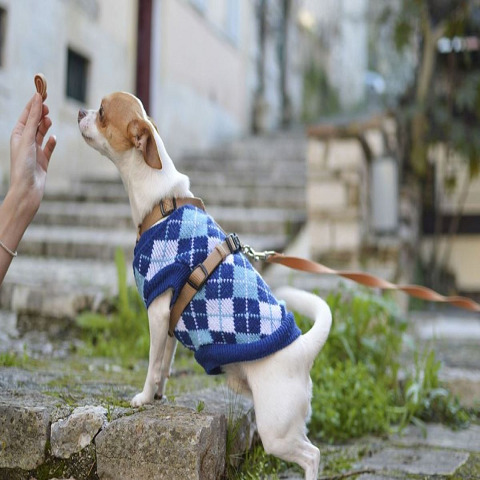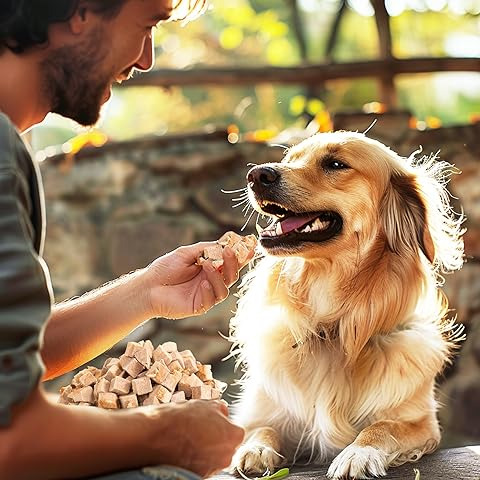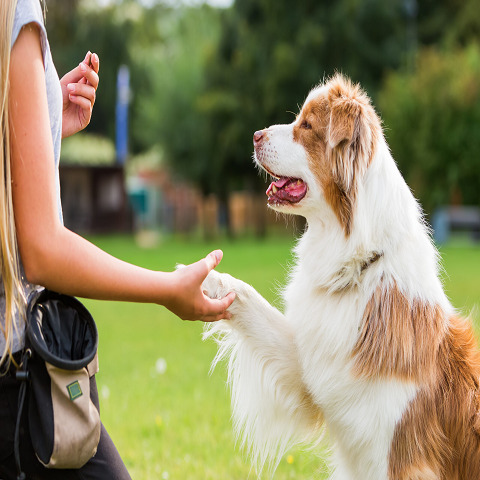
Dogs do behavior training, how to feed food or snacks properly? Dogs are very smart animals, through training, we can teach our dogs a variety of skills or correct improper behavior. And in the training process, the use of snacks as a reward is a very effective method. This article summarizes a few tips to teach you how to use snacks as a reward to train your dog.



Keep the Principle of Feeding in Moderation
Puppies’ stomachs and intestines are still developing are more fragile and their food intake is smaller. Although snacks can be used as a reward, overfeeding snacks during training may burden the dog’s stomach. Therefore, the amount of snacks fed should be controlled to avoid burdening the puppy’s stomach during behavioral training. Snacks should be used as part of the reward, not the main food source.
Balance the Reward Approach
At the beginning of the behavioral training journey, while it’s useful to feed your puppy treats or interact with your puppy through play, the goal of training is to get your dog to want to follow the owner’s behavioral commands. Therefore, we need to build a relationship with our dog based on love and respect and rely not only on treats, but also on recognizing and praising our puppy in a timely manner during the training process. In addition to snack rewards, a combination of verbal praise and body language should be used to acknowledge correct behavior. As training progresses, gradually reduce the frequency of snack rewards and increase the use of non-physical rewards, such as praise and affirmation, to help the puppy establish proper demeanor.
Consider Rewards Instead
Some puppies prefer to play rather than eat, so when starting behavioral training with a puppy, play with toys is needed to encourage Ta’s to follow our behavioral commands. For some puppies, play is a reward in itself, and as a pet owner, it is important not to focus on what toys to give them, but rather to start a fun game with them. In this case, use toys and interactive games as rewards, while taking care to protect your puppy’s dental health by avoiding toys or play styles that could cause injury.
Focus Your Dog’s Dental Health
When engaging in pulling games with your puppy, choose toys that are appropriate for your puppy’s age and size, and control the force and duration of play to prevent damage to your puppy’s teeth. Avoid sharp or hard objects to minimize the risk of oral diseases such as gingivitis or periodontitis. Because, puppies’ teeth are very sensitive and if you use excessive force or improper toys in pulling games, it may cause Ta’s teeth to be injured or dislodged, you should choose toys that are appropriate for their age and size when playing pulling games with your puppy, and avoid using sharp or hard objects.

